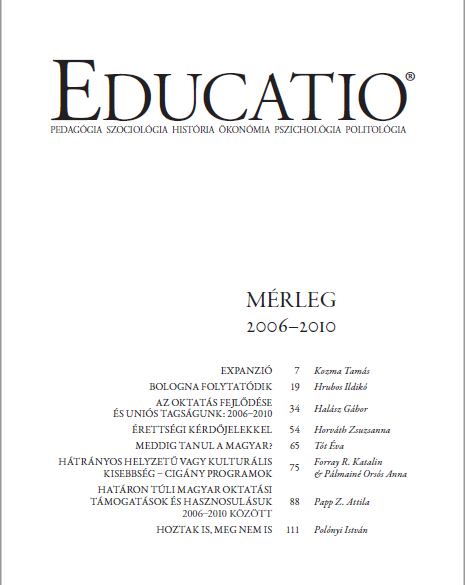Hátrányos helyzetű vagy kulturális kisebbség – cigány programok
Social Equality vs Cultural Identity: An analysis of the Gypsy/ Roma educational policies of the Hungarian government, 2002–2010
Author(s): Anna Pálmainé, Katalin R. ForraySubject(s): Education, Government/Political systems, State/Government and Education, Sociology of Culture, Ethnic Minorities Studies
Published by: Akadémiai Kiadó
Keywords: Cultural identity; Gypsy-Roma educational policy; Hungarian government;
Summary/Abstract: Two policies of Gypsy/Roma education are differentiated in this paper. Policy A deals with the Gypsy/Roma communities as socially disadvantaged groups; while policy B recognises them as cultural minorities and aims at integrating them into the cultural minorities of Hungary. Policy A uses education as a means for socio-economic equality. Policy B uses schools and other institutions for developing Gypsy/Roma cultural identity by conveying and disseminating their cultural heritages. The two policies are partly complementary, but are partly contradictory. Their representatives have been competing from the political transition (1990) on, and can also be connected to political ideologies and party politics. 2002–2010 proved to be a period for the domination of policy B. Various socio-economic government projects have been initiated, some partly successfully (and some not). Educational institutions, however, supporting policy B (the cultural identity of the Gypsy/Roma communities) failed. A more successful and educationally-orientated government may have to find a better balance between the two policy alternatives and their representatives in the future, therefore.
Journal: Educatio
- Issue Year: 19/2010
- Issue No: 1
- Page Range: 75-87
- Page Count: 13
- Language: Hungarian

